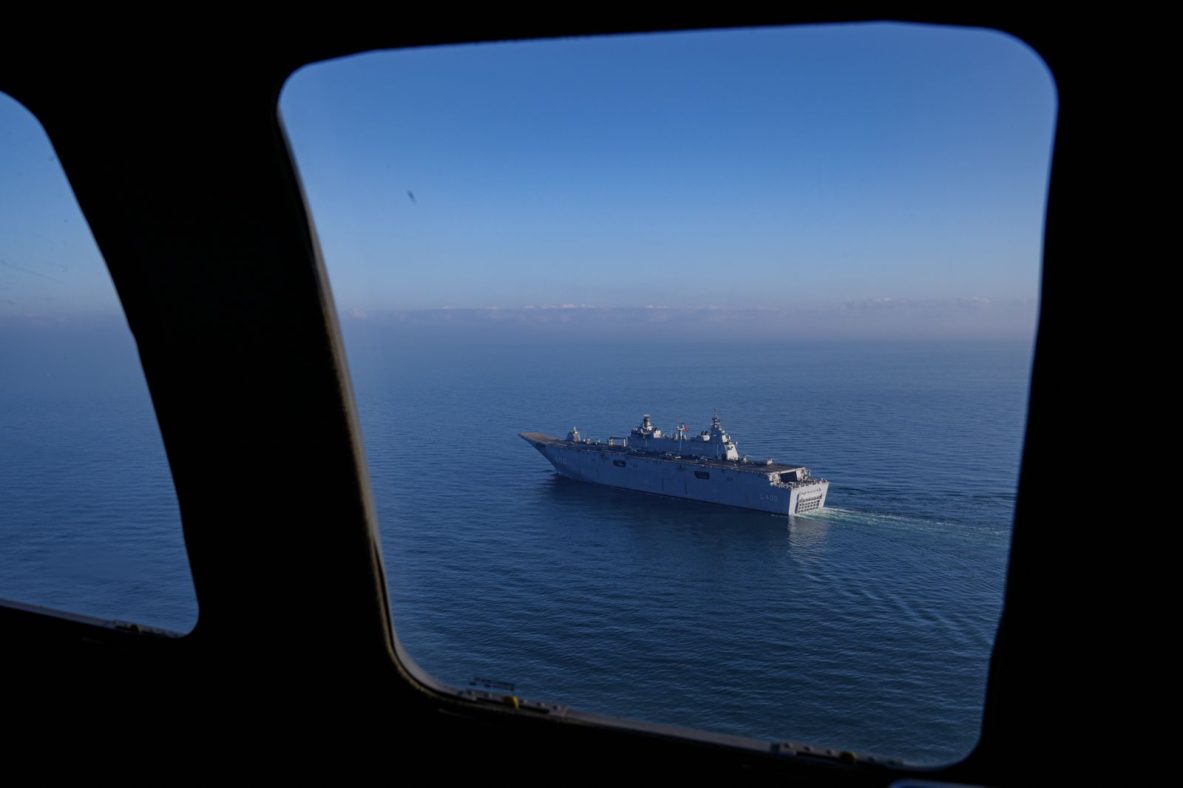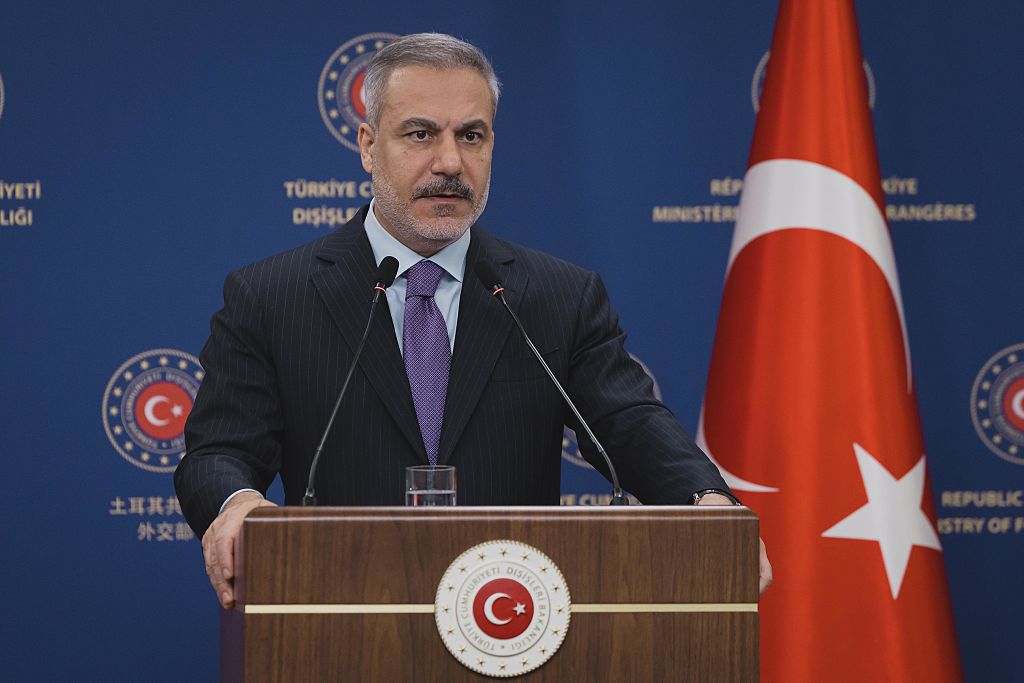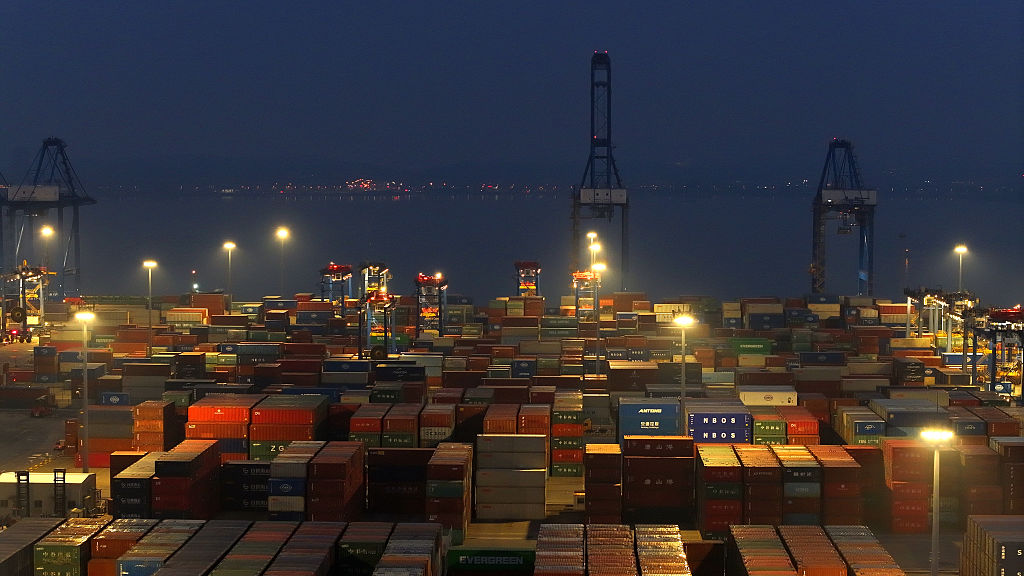EXPLAINER: Can the chaos in the Mediterranean be fixed?
Given the complexity and volatility of one of the world’s most sensitive regions, optimism remains limited

Greek Prime Minister Kyriakos Mitsotakis recently announced his intention to organise a multilateral meeting involving countries in the Eastern Mediterranean to address ongoing maritime disputes.
Yet, given the complexity and volatility of one of the world’s most sensitive regions, optimism remains limited.
The countries Mitsotakis hopes to bring together are Cyprus, Egypt, Turkey, and Libya. The goal is to explore potential solutions to long-standing disagreements over maritime zones, which are areas that are crucial for the exploration of gas and oil reserves.
The US has always shown a strong interest in ensuring the region’s stability, as major American energy companies have invested heavily there. For Europe, the stakes are even higher: potential energy resources could help the EU move towards greater strategic autonomy.
Why is it so complex?
Resolving these disputes will not be easy. All the regional players have ratified the United Nations Convention on the Law of the Sea (UNCLOS), except Turkey.
The central disagreement concerns whether islands – numbering between 3,000 and 4,000, with about 300 inhabited – can claim Exclusive Economic Zones (EEZs) that entitle them to explore and exploit marine resources.
UNCLOS affirms that they can, provided the islands are inhabited. Ankara, however, rejects this interpretation as it promotes what it calls an “equitable delimitation” of maritime zones, based on general geographical principles.
In practice, Turkey argues that small Greek islands close to its coast, such as Kastellorizo, should not automatically generate EEZs, as doing so would “unfairly” reduce Turkey’s maritime area. Instead, it proposes drawing the boundary roughly along the middle of the Aegean Sea, granting full EEZ rights only to Greece’s mainland.
Greece, by contrast, maintains that islands enjoy the same rights as mainland territories under international law and insists that maritime boundaries should be drawn between the outermost Greek islands and the Turkish coast.
To bolster its claim, Turkey signed a 2019 maritime deal with Libya’s Government of National Accord (GNA), then the internationally recognised authority in Tripoli. The accord controversially disregarded the presence of Greek islands, including Crete.
The EU, the US, and Egypt have all condemned the Turkish-Libyan maritime deal and refuse to recognise it as valid under international law.
At the same time, General Khalifa Haftar – the Benghazi-based commander of the Libyan National Army and a long-standing ally of Greece – has never ratified the agreement. Reports, however, suggest he may now be reconsidering following pressure by Turkish President Recep Tayyip Erdoğan.
Any such shift would further complicate the dispute, as the maritime agreement would gain support from all of Libya, increasing pressure on Athens.
In retaliation, Greece and Egypt signed their own maritime delimitation accord in August 2020, directly overlapping with the Turkish-Libyan claims. Cyprus and Egypt had previously concluded a similar agreement in 2003. Yet both Greece and Cyprus have since held back from fully formalising their own EEZ boundaries, wary of provoking a strong Turkish response.
The dealbreakers
This is not the first attempt to bring order to the Eastern Mediterranean. The EU launched a similar initiative in December 2020, which produced no results, and analysts are not optimistic this time either.
A key obstacle is Turkey’s refusal to engage with Cyprus, which Ankara does not recognise following its 1974 invasion and subsequent occupation of roughly one-third of the island. Turkey believes that the Greek-Cypriot government cannot represent the entire island.
“If Turkey accepts the participation of the Republic of Cyprus in a multilateral forum for the Eastern Mediterranean, this will mark a clear departure from its main negotiation stance,” said George Tzogopoulos, senior fellow at the Hellenic Foundation for European and Foreign Policy (ELIAMEP).
If not, energy questions around Cyprus cannot be practically settled, he said.
According to Costas Ifantis, an expert in international relations, there are many deal breakers, though he noted that Greece’s push for multilateral negotiations “makes sense”, since bilateral talks among local players have reached a dead end.
“For this initiative to progress, Libya or Turkey – or both – would have to abandon their surreal bilateral deal,” he told Euractiv. “And, of course, Turkey would have to at least tolerate – if not recognise – the presence of Cyprus. At this moment, it’s difficult to imagine how that could happen.”
The US factor
Washington has not yet publicly endorsed Greece’s initiative, despite having significant interests in the region. American energy giants – including Chevron and ExxonMobil – are involved in exploration projects, most notably Chevron’s recent contracts to explore gas and oil in politically sensitive waters south of Crete.
“The presence of American companies is very important and should not be underestimated”, Ifantis said, arguing that it sends a message to Turkey and Libya that the US largely shares Greece’s approach to maritime zones.
He cautioned, however, that Athens should not expect US companies – or Washington – to take sides in a potential escalation with Turkey.
While the US position on maritime zones generally aligns more closely with Greece’s interpretation, successive administrations have avoided taking sides in disputes between Greece and Turkey, both NATO allies.
The Dragon parallel
Another potential challenge for Washington is the legal precedent a political solution not based on UNCLOS could set regarding China’s claims in the South China Sea. If the US were to back Turkey’s position in the Aegean, it would weaken its argument in Asia, where Beijing uses “historic claims” to justify a selective approach to islands and EEZs.
The well-known ‘nine-dash Line’ serves as China’s claimed boundary to assert sovereignty over large portions of the South China Sea. This claim impacts six neighbouring countries and reflects China’s stance that only its islands can generate EEZs, while denying similar rights to others.
Still, analyst George Tzogopoulos argues that the Americans are likely to keep the two theatres separate.
“Even if a conference on the Eastern Mediterranean were convened under US auspices, it would hardly have any impact on the South China Sea,” he said. “The Mediterranean is a West-friendly basin,” he said.
Despite repeated requests for comment, the European Commission could not be reached to confirm whether Brussels had been informed in advance by Athens about the initiative. In the case of Cyprus, though, a government source confirmed to Euractiv that Nicosia hadn’t been notified.
(cs, mm)









